Post-Doctoral Affiliates
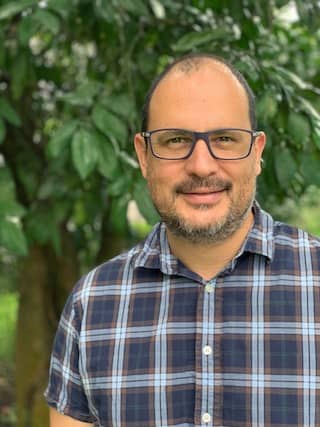
Celis, Gerardo
Gerardo received his Ph.D. in Interdisciplinary Ecology from the University of Florida. He has a broad interest in terrestrial ecosystem processes from Tropical to the Arctic and how anthropogenic impacts influence these processes. His most recent work included understanding the impacts of rising Arctic temperatures on the carbon balance of arctic ecosystems. He has also studied the role of exotic invasive species in the trajectory of ecosystem recovery after disturbances and identified management methods to enhance and/or speed up ecosystem recovery. He comes from the University of Florida where he has served as an Agroecology lecturer in the Agronomy Department and has written and co-authored over 30 publications. He serves in the Department of Anthropology at the University of Arkansas as a postdoctoral fellow in Environmental Dynamics on the Collaborative Research project “Interactions of natural and social systems with climate change, globalization, and infrastructure development in Yamal (Russian Arctic),” focusing on the biotic components of the project.
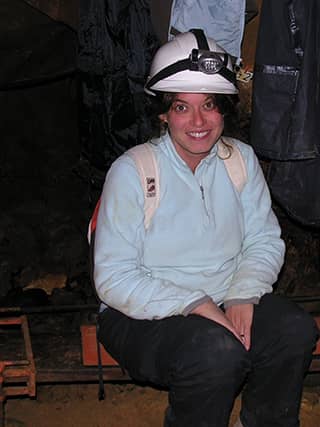
Estalrrich, Almudena
“I received my Ph.D. in Paleontolology from the Universidad Autónoma de Madrid in Spain. My background as a biologist and my complementary postdoctoral formation within Social Sciences (Prehistory) allow me to have a multidisciplinary approach to studying human behavior through the analysis of skeletal remains. My principal line of research is the Biocultural Evolution of the genus Homo, based on the analysis of dental wear, mainly in Homo neanderthalensis and Paleolithic Homo sapiens. In parallel, I am developing the following ongoing research projects: 1) Paleobiological study of the El Sidrón Neandertals; 2) Biological Anthropological analysis of the humans remains from the Mesolithic to Chalcolithic in the Cantabrian Region; 3) Development of a dental microwear database of modern samples to establish a baseline to compare and reconstruct the diet of fossil specimens.
I joined the Department of Anthropology (Ungar’s Lab) at the University of Arkansas to develop the 3DFOSSILDIET project (Tracing the Ontogenetic Evolution of Behavior in Neandertals and Anatomically Modern Humans in the Franco-Cantabrian Region. An Integrative study of 3D Tooth Wear Patterns), under the Marie Skłodowska-Curie Actions program (EU founded, project ID 891529).
I have written or coauthored more than 40 scientific papers and book chapters, being the first author in nine of them including Plos One, Journal of Human Evolution, American Journal of Physical Anthropology, International Journal of Paleopathology, and American Journal of Primatology) and 38 communications into national and international meetings. I have served as a reviewer for international scientific journals, scientific committees, National Funding Agencies reviewer and Doctoral Dissertation Committee.
I am a member of the El Sidrón cave Neandertal’s research team, and also have studied the collections from Musée de préhistoire de Tautavel and Laboratoire Départemental de Préhistoire du Lazaret (France), National Museum of Natural History (USA), Royal Belgian Institute of Natural Sciences (Belgium), National Museum in Dar es Salaam (Tanzania), Museo Arqueológico de Asturias (Spain), Museo de Arqueología y Prehistoria de Cantabria (Spain), Arkeologi Museoa (Spain). I have participated in various field campaigns in Spain.”
- Postdoctoral Institution: Senckenberg Gesellschaft für Naturforschung in Frankfurt am Main, Germany
- Postdoctoral Institution: University of Cantabria in Spain
- Graduate Institution: Spanish Natural History Museum (MNCN-CSIC, Madrid) and Universidad Autónoma de Madrid, Spain.
Web pages:
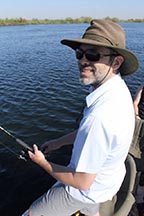
Fox, John Tyler
Dr. J. Tyler Fox, Post-doctoral fellow and Graduate Teaching Faculty, Department of Biological Sciences & USGS Cooperative Fish and Wildlife Research Unit, University of Arkansas
Dr. Fox’s research focuses on the biological, physiochemical, and spatiotemporal processes that shape aquatic ecosystems across a range of biomes. His transdisciplinary research bridges the usability and scale gaps between field and remote sensing data using novel approaches and cross-boundary knowledge integration to anticipate and address emerging threats associated with rapid Earth System change.
Dr. Fox received his M.S. in Biology and GIS Technology from the University of Central Arkansas and his Ph.D. in Fish and Wildlife Conservation at Virginia Tech, where his NSF-funded research on seasonal water quality and human health in Botswana helped to identify important social-ecological couplings and feedbacks between climate, wildlife, and land use that drive microbial dynamics in the Chobe River, a vital dryland water source. Dr. Fox has also worked for the U.S. Fish and Wildlife Service on ecological contaminants issues in Wyoming and served in the US Peace Corps as a biologist for the Strandja Nature Park in Bulgaria.

Liu, Chang
Dr. Liu's research interests focus on past, present, and future climate changes, including 1) reconstructing the past climate change and variation through paleoclimate data assimilation approach, 2) climate change on regional and continental scales, and 3) improving the method for calculating the freezing/thawing index.
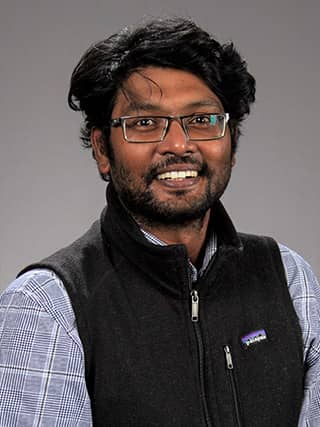
Mahmud, Kishan
Kirshan received his Ph.D. in Crop and Soil Sciences from the University of Georgia, Athens. His research focused on improving soil health and crop nutrient density by using local effective microorganisms (LEMs). After his PhD. he worked as a research professional in the Center for Applied Genetic Technologies, Univeristy of Georgia, Athens investigating the relationship between tall fescue, fungal endophyte, and the soil fungal communities and the subsequent role of that three-way interaction in soil nutrient acquisition and enviornmental stress tolerance by tall fescue.
I am working as a Soil Health Ecologist-Post Doc Fellow for the Arkansas Discovery Farm, Division of Agriculture. I am investigating the dynamic interactions between soil biological communities and agronomic crops, and how the soil biology, especially soil microbial communities impact soil health in Arkansas soil. My current research involves eight Arkansas Discovery Farms across the state, ranging from pastures in northwest Arkansas to row crops in the Mississippi delta. My research involves collecting soil samples from these farms and analyzing them for active soil carbon, soil extracellular enzymes and different bacterial and fungal populations. The outcome of this research has the potential to serve as suggested best management practices in terms of soil health (microbiology) for the row crop growers and cattle producers in Arkansas. I am also an Extension educator and closely working with different county agents, Arkansas Soil Health Alliance (ASHA), Arkansas Conservation Districts and Arkansas NRCS.
Webpages:
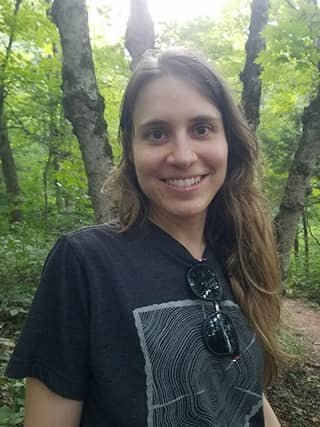
Moreno-Garcia, Beatriz
Dr. Beatriz Moreno-García, Post-doctoral researcher, Department of Biological and Agricultural Engineering, University of Arkansas
“I am a post-doctoral researcher at the Biological and Agricultural Engineering Department at the University of Arkansas. I started this position in 2018. My research is focused on sustainable agriculture and especially on rice systems. I evaluate water-saving practices implemented in rice production systems in the US Mid-South from both agronomic and environmental perspectives. This research includes the use of farm-level decision support tools. This research provides guidance to rice farms to compete in a market that increasingly demands sustainable products.”
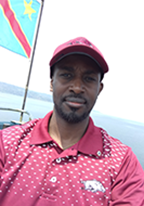
Mulimbi, Willy
Willy Mulimbi is a graduate of the Environmental Dynamics Program at the University of Arkansas and will beginning his post doc in Agricultural Engineering.

Polvadore, Taylor
Taylor received her MA (2016) and PhD (2022) in Anthropology from the University of Florida. For her Ph.D. research, she combined behavioral and ecological data on African colobine monkeys she collected through fieldwork in the Taï National Park, Côte d’Ivoire with skeletal morphology data to examine predator avoidance, locomotor performance, and skeletal structural integrity. In 2022, Taylor accepted a post-doctoral research position in the Department of Anthropology at the University of Arkansas with the Terhune Lab. She is examining the ontogeny of feeding behavior in capuchin monkeys via diceCT analysis.
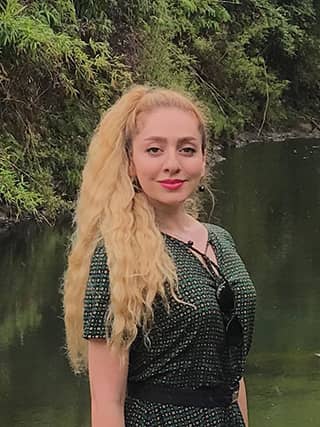
Tajfar, Elahe
Elahe is a post-doc in Biological and Agricultural Engineering Department at the University of Arkansas. She is working on synthesis of land surface fluxes from different landscapes in the U.S. Mid-South, following the Delta Flux initiative. She is investigating the effects of land cover and management practices on the carbon dioxide. She received her Ph.D. in Civil and Environmental Engineering from the University of Hawaii at Manoa in 2019. Her Ph.D. dissertation focused on the estimation of turbulent heat fluxes via the synergistic assimilation of land surface temperature, air temperature and specific humidity into a variational data assimilation model.
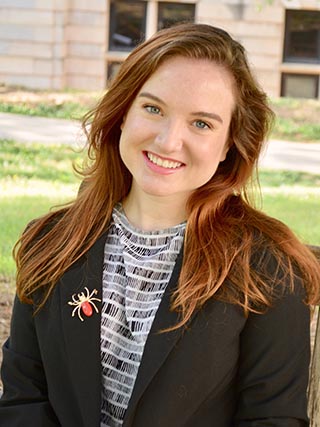
Yoakum, Caitlin
Caitlin received her BA (2014) and MA (2016) in Anthropology at Texas Tech University with a focus on forensics and classical studies. She obtained her PhD (2021) in Anthropology from the University of Arkansas where she focused on the trigeminal nerve and its relationship to the teeth and diet in primates. Caitlin used the anatomical knowledge gained from her dissertation work to teach human anatomy at High Point University as a fellow in the summer of 2019. After graduation, Caitlin accepted a post-doctoral research position in the Terhune Lab to study the differences in chewing muscles between capuchin monkey species using the novel staining technique known as diceCT.